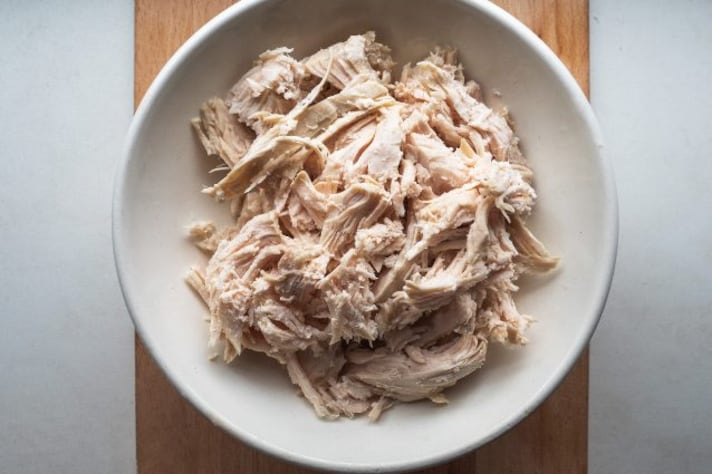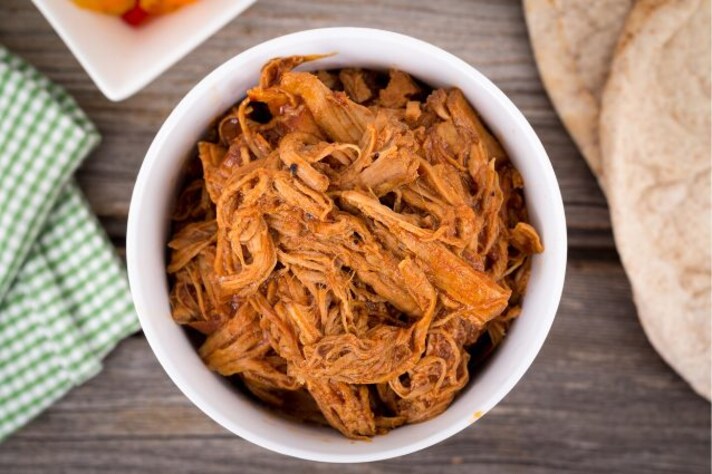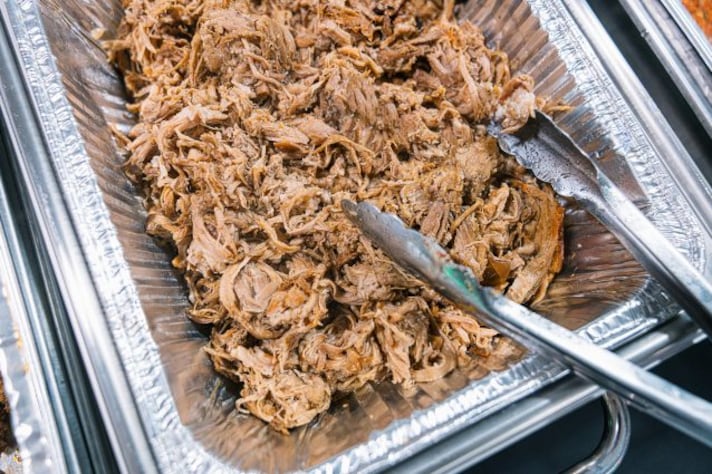How to Shred Meat in Just Under a Minute: The Stand Mixer Trick That Will Save You Precious Time
Shredding meat doesn’t have to be a hassle. Using a stand mixer, you can shred meat in under a minute by cutting it into chunks and using the paddle attachment. If you don’t have a stand mixer, hand mixers, food processors, or even gloves for hand-shredding work well.

If you've ever spent what feels like an eternity shredding meat with a fork, you know that it’s a tedious, time-consuming task—especially after you’ve already invested hours cooking a delicious cut of meat. Whether it's pulled pork, chicken, or beef, the last thing you want is to waste precious time forking through your hard work. But here’s the good news: you don’t have to. With the help of a stand mixer, you can shred meat in under a minute, effortlessly and perfectly. Here’s the hack you’ve been waiting for.
The Stand Mixer Shredding Trick
A stand mixer, like a KitchenAid, isn’t just for baking cakes and mixing dough. It’s a secret weapon in the kitchen when it comes to shredding meat. This trick works by using the mixer’s paddle attachment to break down the meat quickly and evenly, without having to spend time pulling it apart by hand. Here’s how it works:
- Once your meat is cooked and resting, cut it into manageable chunks—about 2–3 inches thick. This is just to make sure the stand mixer can handle the meat with ease.
- Place your meat chunks into the mixer’s bowl. Attach the paddle attachment, which is typically used for mixing dough or batter.
- Turn the stand mixer on low speed to begin with. You’ll want to give the meat time to break down slowly. Within seconds, you’ll notice the meat starting to shred. Gradually increase the speed to medium or medium-high, depending on how finely you want the meat shredded.
- After about 30 seconds to a minute, the meat should be perfectly shredded. Scrape down the sides of the bowl if needed, and you’re done! It’s that simple, and your meat will be ready to use in tacos, sandwiches, or any recipe that calls for shredded meat.

What If You Don’t Have a Stand Mixer?
Not everyone has a stand mixer in their kitchen arsenal, but don’t fret—you can still shred meat efficiently using other methods. Here are a few hacks that’ll save you time without resorting to the ol’ fork-and-patience method.
The Hand Mixer Hack
A hand mixer can work in much the same way as a stand mixer. The process is similar: simply cut your cooked meat into chunks, place them in a large bowl, and use the hand mixer with the beaters attached. Start on a low speed to avoid splattering and gradually increase the speed until your meat is shredded. It won’t be quite as hands-free as a stand mixer, but it will definitely get the job done.
The Two Fork Method (With a Twist)
If you’re set on using forks but want to speed things up, you can use the “two-fork” method in a faster, more efficient way. Instead of pulling the meat apart slowly, you can use both forks to hold the meat in place while you shred with quick, powerful motions. This method is particularly effective if you’re working with a large batch of meat. It still requires some elbow grease, but you can move much faster than using a single fork.
Using a Food Processor
If you have a food processor, this can be a great alternative to both stand and hand mixers. Simply pulse the meat in small batches for a few seconds at a time. Be careful not to over-process, as the meat can turn mushy rather than shred. This method is ideal for ground meats or smaller cuts of poultry but might not work as well with larger cuts like roast beef or pork.

Shredding with Your Hands
If you’re in a pinch and don’t have a stand mixer or hand mixer, you can always fall back on the old-school method of shredding meat by hand. But there’s a hack to make it faster. After letting your cooked meat rest, use gloves or clean kitchen towels to protect your hands from the heat and quickly pull apart the meat in large chunks. The warmth of the meat will help it separate more easily, and it’s quicker than using forks.
Hot or Cold? When Is the Best Time to Shred Meat?
Timing is everything when it comes to shredding meat, especially when you consider whether to shred it while it’s still hot or after it has cooled down. The general rule of thumb? Shred meat while it’s still warm, but not piping hot. Here’s why:
When meat is still warm, the fibers and connective tissues are softer and easier to break down. This means that it’ll shred more easily and evenly, giving you that perfect, pulled texture. If you wait too long and the meat cools down completely, it can become tougher and more difficult to shred.
However, don’t try to shred meat while it’s too hot—this can cause burns and make the process more difficult than it needs to be. Let the meat rest for a few minutes after cooking, just long enough for it to cool slightly. This will allow the juices to redistribute and make the shredding process smoother.
If you’re using a stand mixer or hand mixer, shredding while it’s warm also ensures that the machine doesn’t have to work as hard, preserving the quality of the meat and the texture you’re aiming for.

;Resize,width=767;)

;Resize,width=712;)

